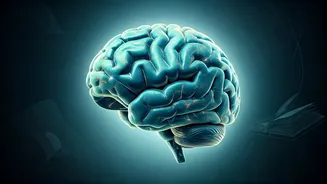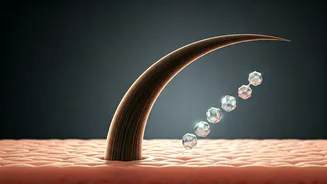Iron Deficiency Explained
Iron deficiency anemia is a prevalent issue in India, impacting a significant portion of the population. This condition arises when the body lacks sufficient
iron, a mineral vital for producing hemoglobin, the protein responsible for carrying oxygen in red blood cells. Symptoms of iron deficiency can include fatigue, weakness, pale skin, headaches, and shortness of breath. The causes are multifaceted, often involving inadequate dietary intake of iron-rich foods, poor iron absorption due to other dietary factors, and increased iron loss, for instance, during menstruation or from certain medical conditions. Addressing this deficiency necessitates a multi-pronged approach. Firstly, enriching the diet with iron-rich foods such as green leafy vegetables like spinach, lentils, beans, fortified cereals, and lean meats is crucial. It is also beneficial to combine iron-rich foods with vitamin C-rich sources, as vitamin C enhances iron absorption. Furthermore, healthcare professionals may recommend iron supplements to correct the deficiency, particularly in severe cases. However, it's vital to consult a healthcare provider before starting iron supplements, as excessive iron intake can lead to adverse health effects. Regular health check-ups and monitoring can help prevent and manage iron deficiency effectively. This proactive approach underscores the importance of nutritional awareness and balanced dietary practices for maintaining optimal health and well-being.
Calcium: Essential Bone Health
Calcium deficiency is another widespread nutritional concern in India, impacting bone health and various bodily functions. Calcium is crucial for building and maintaining strong bones and teeth, as well as for nerve function, muscle contractions, and blood clotting. Deficiency can lead to several health issues, including osteoporosis, a condition characterized by weakened bones, and an increased risk of fractures. The factors leading to calcium deficiency often involve inadequate dietary intake, reduced calcium absorption, and increased calcium loss. Many individuals in India may not consume sufficient amounts of calcium-rich foods like dairy products, leafy green vegetables, and fortified foods. In addition, factors such as vitamin D deficiency can hinder calcium absorption. Addressing calcium deficiency involves increasing calcium intake through dietary modifications and, if necessary, supplementation. Increasing the intake of calcium-rich foods is vital, incorporating items such as milk, yogurt, cheese, fortified plant-based milk alternatives, and leafy green vegetables into the diet. Adequate vitamin D intake is also essential, as vitamin D aids in calcium absorption; exposure to sunlight and consuming vitamin D-rich foods or supplements can help maintain optimal vitamin D levels. Healthcare professionals might recommend calcium supplements, particularly for those at high risk of deficiency. Regular exercise, especially weight-bearing exercises, is also crucial for promoting bone health. By adopting these strategies, individuals can proactively protect their bones and maintain overall health and vitality.
Vitamin D Deficit Concerns
Vitamin D deficiency poses a significant health challenge in India, with widespread implications for various bodily functions. Vitamin D, often referred to as the 'sunshine vitamin,' is essential for calcium absorption, bone health, immune function, and overall well-being. A lack of vitamin D can lead to bone weakening, increasing the likelihood of fractures, and also affect immune system function, potentially increasing the risk of infections and other health issues. Several factors contribute to vitamin D deficiency in India, including limited sun exposure due to lifestyle or clothing, inadequate dietary intake, and impaired absorption. While sunlight exposure is a primary source of vitamin D, many Indians may not get sufficient sun exposure. Dietary sources of vitamin D, such as fatty fish, egg yolks, and fortified foods, may also be limited in many diets. Addressing vitamin D deficiency necessitates a comprehensive approach. Enhancing sun exposure by spending more time outdoors, particularly during peak sunlight hours, is crucial. Moreover, the dietary intake of vitamin D-rich foods or fortified options should be increased. Vitamin D supplements may be recommended by healthcare providers to correct deficiencies, and these supplements come in various forms, including tablets, capsules, and liquid drops. Regular blood tests can monitor vitamin D levels and help guide appropriate supplementation. Awareness of vitamin D's significance and proactive measures to prevent or treat its deficiency are vital for promoting overall health and preventing a range of health issues. Furthermore, education about proper supplementation and lifestyle adjustments is essential for a healthy lifestyle.



















